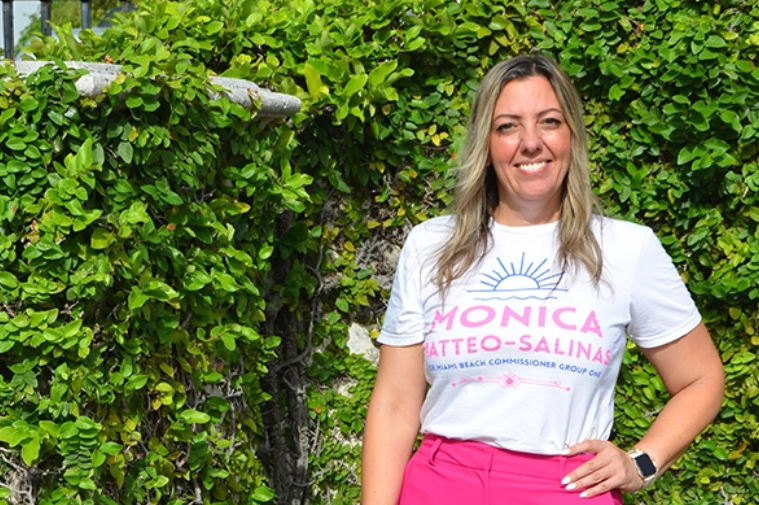After Hurricane Melissa’s exceptionally strong winds subsided, the roots of breadfruit trees clung deep into the fertile Jamaican soil, offering hope and a crucial step toward food security in the future.
For the past 16 years, Mary and Mike McLaughlin, Jamaican natives now living in Winnetka, have helped plant almost half a million fruit trees—mostly non-native breadfruit—across the Caribbean and Africa. About 250,000 of those trees have been planted in Jamaica alone.
Despite its resilience, breadfruit has long been an underutilized source of food, Mary McLaughlin explained. The couple’s organization, Trees That Feed Foundation, aims to expand its use as a crop in locations vulnerable to extreme weather events that are intensifying due to human-made climate change.
Several rapid scientific analyses found that Hurricane Melissa was made more likely and intense because of global warming from fossil fuels. “It’s one of the worst hurricanes—well, it’s the worst hurricane ever—in the Caribbean country,” Mary McLaughlin told the Tribune. “And it hit Jamaica in its breadbasket,” referring to the southwestern parish of St. Elizabeth, named for its fertile soil favorable to many crops that feed the country.
Having planted trees in that area, the foundation anticipates some losses. “However, we have worked in countries that have had hurricanes and seen recovery, and if the trees have roots in the ground, those trees will recover. We know we may miss a bearing season, but the following year, they will produce,” Mary McLaughlin said.
At the same time, she noted, the trees “lock carbon away while feeding people,” essentially addressing the root cause of increasingly destructive weather events.
Jamaicans are now coping with the aftermath of a hurricane so severe it is tied with one from 1935 for the third-strongest ever recorded in the Atlantic Ocean and the most intense to make landfall in the country.
Rita Hilton, who has lived in Jamaica for 60 years and works with the McLaughlins helping farmers export their crops, described the hurricane as “the most intense, horrific storm” she has experienced. Hilton was airlifted to Kingston, the capital, this week after spending seven days in her isolated, damaged home.
“If you look at all the forest trees, there’s not a green leaf; there are tree stumps sticking out of the ground or lying across the road,” she told the Tribune. “Whatever crops were in the ground have been destroyed in that area.”
But not all is lost, especially where those stumps belong to breadfruit trees.
“In times of disaster such as this, when a lot of agricultural produce is damaged, we need things that can actually survive,” Hilton said. She noted that people have been eating breadfruit in a pinch as the food supply has suffered with roads impassable from storm damage.
“The breadfruit trees that did come down have been a godsend for some of the communities,” Hilton added.
As Jamaica recovers, replanting more trees will be crucial to ensuring food security. In the next few months, a new grant from the Trees That Feed Foundation will fund the planting of at least 15,000 trees in Jamaica, according to the McLaughlins.
The years-long collaboration between the foundation and Jamaica’s Forestry Department began when the department started replanting native forests, mostly timber trees such as blue mahoe and mahogany, which are better adapted to withstand strong winds.
“The plan is to use more and more natives in our reforestation programs and to transition some of the existing areas that have a high percentage of nonnative species,” said Henry, head of the Forestry Department. “This will increase the resilience of these spaces, particularly in light of the obvious and current problem of hurricanes in Jamaica.”
The McLaughlins approached the local government with the idea of also distributing fruit trees, which have the added benefit of offering a bountiful harvest every year without the need to replant crops.
After moving to the United States for Mike McLaughlin’s job as an actuary in 1978, the couple settled in the Chicago area a decade later. But their connection to Jamaica remained strong, especially in the early 2000s, when they began feeling compelled to take action because of the climate crisis and its consequences for island nations such as Jamaica. Thus, the Trees That Feed Foundation was founded.
In Jamaica, the foundation provides grants to the Forestry Department to purchase cuttings from local plant nurseries, which the government then distributes to small farmers at no cost.
“We do get our hands dirty, but us two little people can’t plant half a million trees,” Mike McLaughlin said. “We work with farmers. They really know what they’re doing.”
“So we don’t go in and impose,” Mary McLaughlin added. The farmers want a sense of ownership over the trees, which extends to the small businesses that grow from selling the fruit.
The program facilitates food security and income generation, said Henry, head of Jamaica’s Forestry Department.
“You heard of win-win? Well, this is win-win-win-win,” Mike McLaughlin said. “The win is nutrition. The win is the environment. The win is the economy. And our donors are generous people, and I would say they are winning too. They want to help, and we give them a way to help that is very efficient.”
https://www.mcall.com/2025/11/14/hurricane-melissa-jamaica-breadfruit-climate-change/


